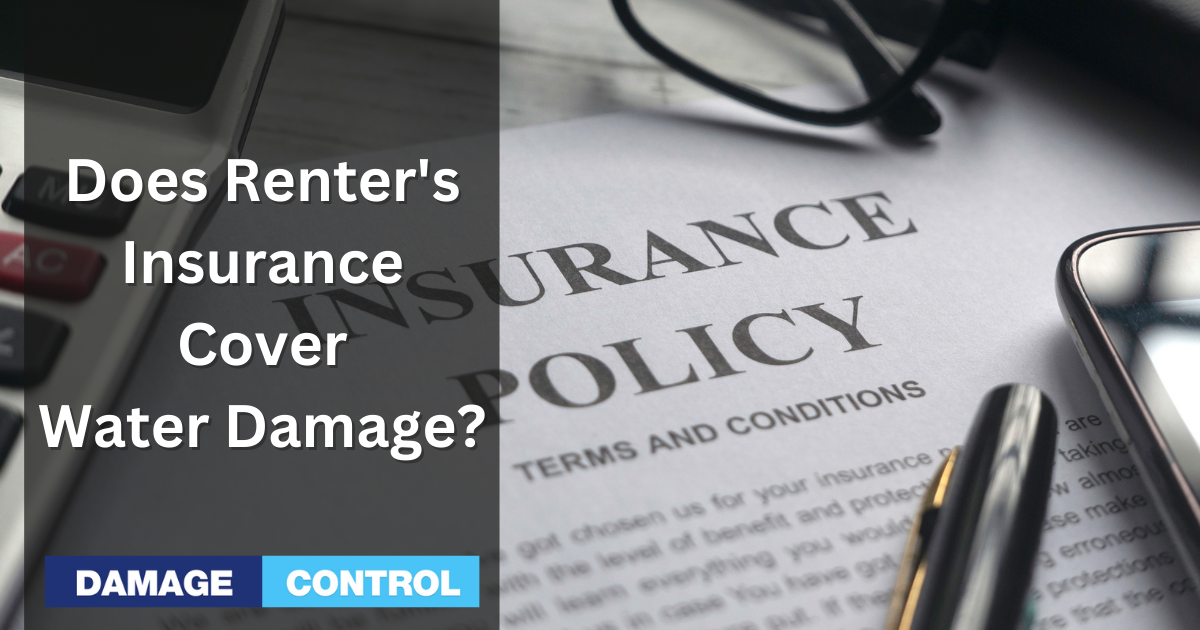When renting any establishment to live in, it is always a great idea to have a renter's insurance policy. However, one of the tricky aspects of renter's insurance policies can be water damage. You need to know the specifics of what they will and will not cover before you purchase, not after.
As a renter, you are not obligated to make repairs concerning the dwelling. That responsibility falls to the property owner. If there is evidence of a water leak or even a busted pipe that happens suddenly, you must contact your landlord immediately and report the problem. As long as the water damage is not something you caused directly, then the landlord is obligated to make repairs.
Reporting water damage to your renter's insurance company and filing a claim for damage to the dwelling is not something you should do. They will not consider paying that claim if the landlord is responsible.
If by chance the problem was caused by you, because perhaps you allowed a bathtub or sink to overflow and the damage is your fault, then your particular policy may cover those costs for repair to the dwelling place. If you were the cause of the damage to the property, whether it is water damage, fire, or something else, a landlord usually has the option to sue you for those damages. If you want this covered by your policy, then you should check into its availability before you decide on a policy.
Renter's Insurance Covers Your Belongings, Not Your Residence
The main thing that renter's insurance is designed to do is cover your personal belongings in case of damage or theft. This could be from a fire, water damage, or burglaries if it is so stated in your policy. The extent of the damage and the cost to replace the item or items is something to consider before you file a claim. If the item costs less to replace than your insurance deductible, then making a claim would not be wise.
As stated above, your policy is not designed to cover any cost related to repairing the dwelling unless you cause the damage. It is very important to read a policy thoroughly to be clear about this type of claim before you purchase it.
Temporary Accommodations For Repairs
When you purchase a renter's insurance policy, one thing that you should make sure it covers are temporary accommodations in the event you have to leave your rented dwelling while repairs are being done. Most policies do. If there is a fire or water damage bad enough to cause you to need for another place to stay temporarily, you want to know you are protected and won't be suddenly homeless.
Temporary accommodations could include motel or hotel stays. It might even help you to relocate if that is necessary. Once again, this is why it is important to ensure you understand every detail of an insurance policy before you purchase. You want to know exactly how many bases you have covered if you need specific considerations.
The Difference Between Flood & Water Damage Coverage
One thing about any typical renter's insurance policy is that they do not cover natural disaster floods. At the same time, you will be covered if a pipe bursts and ruins your appliances, furniture or other personal items, that is covered. If a terrible rain storm causes a creek or sewer near your dwelling to overflow and your rental is flooded, it won't cover that.
There are special renter's insurance policies that will cover natural disaster flooding, but they will more than likely always have to be purchased separately. If you know you are renting a place in an area known to flood, then getting this type of flood policy can be a great idea. Even if the property owner has a flood policy, it will likely only cover the dwelling and not your personal belongings.

